Business
Reducing imported vehicles tariff will worsen economy, NAMA warns
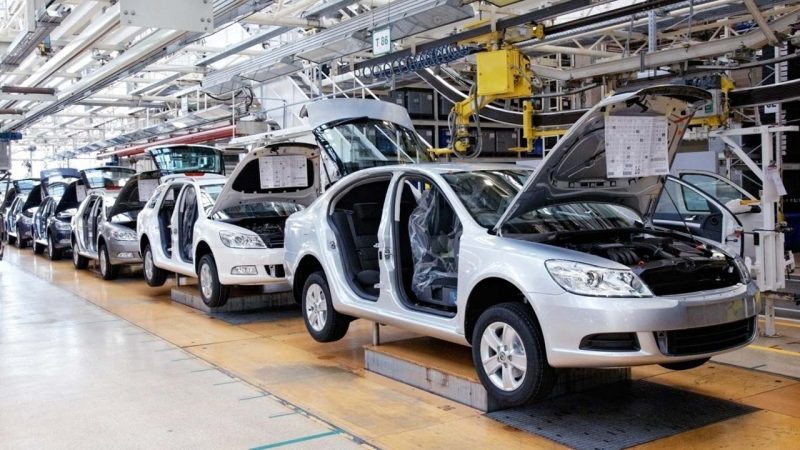
The Nigerian Automobile Manufacturers Association has warned that the plan by the Federal Government to cut the import tariff on vehicles will worsen the nation’s economy.
Executive Director of NAMA, Remi Olaofe, who sounded the warned, specifically said it would lead to loss of more jobs; kill the local automotive industry gradually being revived, as well as make Nigeria a dumping ground for all manner of imported vehicles.
Olaofe, who spoke at a capacity training programme organised by the Nigeria Automobile Journalists Association (NAJA) in Lagos, said NAMA was already engaging the government on the need to rescind this decision as encapsulated in the new finance bill.
His viewed tallied with Chief Innocent Chukwuma’s, Chairman, Innoson Vehicle Manufacturing Company Limited (IVM) in a recent interview with journalists, who said that the reduction of the tariff would be a disincentive to investments, in addition to setting Nigeria’s automotive industry back by at least 10 years.
Chukwuma described the government’s plan as a “shocking decision,” stressing that it would lead to the forced closure of many auto plants in the country.
The Federal Executive Council (FEC) recently announced the plan to reduce the import duties and levies on buses, tractors and other vehicles as contained in the 2020 Finance Bill.
The government said it would reduce the tariff on tractors from 35 per cent to 10 per cent; goods transporting vehicles, from 35 per cent to 10 per cent; and those for transporting people, from 35 per cent to five per cent.
Olaofe urged the government to revive the National Automotive Industry Development Plan (NAIDP) 2013 for the growth of the automobile industry in Nigeria, stressing that policy inconsistency had been the bane of growth of the country.
He recalled how the announcement by the FG of the “National Automotive Industry Development Plan (NAIDP) in 2013 and the subsequent increase in the import tariffs on Fully Built Vehicles (FBUs) attracted the interest of leading auto assemblers.
“With most of the newly established Auto Assembly plants still at their teething stage, the automobile industry was rattled when the content of the proposed finance bill was released to the public.”
Olaofe said reducing the imported vehicles tariff could “result in reversal of huge foreign investments being channelled to this sector of the Nigeria economy; (put) pressure on the already scarce foreign exchange with its attendant pressure on our trade balance; avoidable gross failure of ancillary industries that largely depend on the auto assemblers; worsened unemployment from layoffs and business failures; and Nigeria returning to vehicles dump ground.”
Olaofe lamented that while Nigeria was still toying with the implementation of NAIDP, the neighbouring West African country, Ghana, which “borrowed Nigeria’s automotive bill,” had turned its own into a law with automobile companies jostling to establish plants in that country.
With this position, he argued that the implementation of the African Continental Free Trade Area (AfCFTA) in 2021 would further weaken the Nigerian economy as goods and products from Africa could come in without restrictions.
He said, “It can’t be in the interest of this country to say that the NAIDP Bill 2013 is about to collapse. There is no single part of vehicles that is manufactured in this country. We used to produce tyres, they are no more here. We produced batteries in this country before, it has become a history. In Kaduna, we had a company assembling Peugeot vehicles, it is no more there. The assembling plants are not doing anything again.
“There is no economy in the world where you see vehicles manufacturing go from zero to a Complete Knock Down (CKD); there is a process. It is a driven process. Money is involved. Automotive policy is the best we have; but we want to destroy it. This is very scary.
By next year, we are starting with the AfCFTA . What is going to be the hope of this country? Ghana borrowed the auto policy of Nigeria, Ghana has commenced implementation. I was in Rwanda last year to see its assembly plant; it is still this Semi Knocked Down (SKD). The issue is that you cannot have an auto assembly without the market. We have got the market here.”
He urged Nigeria to use its market to its advantage, adding that other African nations were targeting the market
Auto
Luxury bus owners: Count us out of planned mass protest

Luxury bus owners: Count us out of planned mass protest
Long distance road transport owners and operators whose buses ply various routes across Nigeria have dissociated themselves from the ‘Days of Rage’ nationwide protests planned to commence on Thursday, August 1, 2024.
The transporters under their national umbrella body, Association of Luxury Bus Owners of Nigeria (ALBON), disclosed this at a press conference in the Utako area of Abuja on Thursday.
They described the planned protests as an ill wind that would blow anybody no good.
Briefing the press on ALBON’s position after a meeting in their Abuja office, the association’s leadership led by the President, Mr. Nonso Ubajaka, said experience had shown that such protests are usually infiltrated by hoodlums using the opportunity to unleash violence.
He said members reasoned that if held, the protests could lead to loss of lives and wanton destruction of properties.
He said the resolution of the members of his association had been conveyed to the Minister of Transportation, Senator Said Ahmed Alkali, making it clear that they would not be a part of the planned protests.
The association acknowledged that there is economic hardship in the country, with Nigerians feeling the impact of rising food prices and high cost of living.
The ALBON leadership, however, urged those planning to protest to have a rethink and seek more peaceful ways of getting the government to address the problems, including making themselves available for peaceful dialogue.
The ALBON president drew attention to the fact that members’ vehicles operate from Utako to other parts of Nigeria, as well as from other cities and towns to various destinations across the country, which could make their vehicles vulnerable.
Ubajaka said ALBON members could not afford to risk making their buses the targets of violent protests.
He sued for meaningful dialogue while the government works towards finding solutions to the identified problems.
He said, “We don’t want to put our businesses at risk and expose the lives of the people we serve to danger through protests.
“The government has taken steps to mitigate the several national challenges that we are having.”
He called on ALBON members to disregard the planned action, which he continually referred to as a product of “social media” resolve.
Business
Nigeria’s debt service ratio drops from 97% to 68% – Finance minister

Nigeria’s debt service ratio drops from 97% to 68% – Finance minister
Nigeria’s Finance and Coordinating Minister of the Economy, Wale Edun, on Thursday, reported a dramatic drop in the debt service ratio from an alarming 97 per cent in June 2023 to a more sustainable 68 per cent in 2024.
Addressing a press conference on the economy’s half year performance in Abuja, Edun asserted that the reduction allows the government to redirect funds to essential sectors such as infrastructure, education, healthcare, and social services, thereby improving credibility with investors and international financial institutions.
The Minister also noted a decline in Nigeria’s total debt, both domestic and foreign dollar-denominated debt fell from $181 million to $98 million, attributed to timely payments to contractors and the government’s exit from the Ways and Means financing scheme.
He added that the Federal Government’s economic policies over the past year have started yielding positive outcomes.
Edun highlighted an extraordinary 30 per cent growth in non-oil income, surpassing last year’s performance and exceeding budget expectations for the first half of 2024. He emphasized the government’s commitment to diversifying revenue sources beyond oil through robust tax reforms aimed at doubling government revenue as a percentage of GDP, from approximately 14-15 per cent to around 25 per cent.
He outlined strong measures to improve revenue collection, including technological advancements and process optimization within revenue-generating agencies. While oil revenue remains significant, its share of gross revenue has decreased to 30 per cent, down from 41 per cent during the same period last year.
READ ALSO:
- DSS recovers 2,000 bags of government-donated rice in Kastina
- DSS: There are plans to use mass protest for govt change
- INEC uncovers plan to disrupt Edo elections using ESSN operatives
To attract investments from Nigerians abroad, the Minister revealed that plans were afoot to issue a $500 million bond within the next four weeks.
The initiative aims to encourage diaspora Nigerians to bring their funds back home for investment, contributing to economic growth.
Edun acknowledged the hardships faced by Nigerians due to reform policies but assured that the benefits of these reforms will soon be realized. He stressed that President Tinubu prioritizes reducing food prices across the country and is deeply concerned about the welfare of ordinary Nigerians. After resolving transparency issues, the Cash Transfer Programme within the Social Investment initiative has resumed, recently covering approximately 600,000 beneficiaries.
He presented evidence of the economy turning a positive corner and noted that macroeconomic stability was becoming evident, with stable exchange rates, a reducing budget deficit, and a positive trade balance.
He added that investment flows are also positive, and there has been a comprehensive reconfiguration of federal finances to boost revenue and control expenditure.
Despite global economic challenges, Nigeria’s economy grew faster in the first quarter of 2024 compared to 2023. The growth was broad-based, spanning agriculture, industries, and services. Agricultural growth, which was negative in the first quarter of 2023, showed modest growth in the first quarter of 2024. The industrial sector grew seven times faster than in Q1 2023.
Edun noted that while inflation persists, the annual growth rate of inflation is slowing. Although there was a slight uptick in June due to seasonal factors, the overall trend indicates progress towards reduced inflation.
Edun concluded by expressing satisfaction with the well-coordinated fiscal and monetary policies, which are beginning to bear fruit. He emphasized that these policies are paving the way for sustained economic growth and stability, ultimately benefiting all Nigerians.
Nigeria’s debt service ratio drops from 97% to 68% – Finance minister
Business
Meta cracks down on ‘Yahoo Boys’, deletes 63,000 accounts

Meta cracks down on ‘Yahoo Boys’, deletes 63,000 accounts
Meta Platforms Inc., the parent company of Facebook, Instagram, and WhatsApp, has removed 63,000 accounts associated with the notorious “Yahoo Boys” scam group, the company announced in its Q1 2024 Adversarial Threat Report on Wednesday.
The accounts, deleted over the past few weeks, were used for financial sextortion scams and distributing blackmail scripts. Meta reported that a smaller network of 2,500 accounts, linked to around 20 individuals, primarily targeted adult men in the United States using fake identities.
Meta said it identified and disabled these accounts through a combination of advanced technical signals and comprehensive investigations, enhancing its automated detection systems.
“Financial sextortion is a borderless crime, fueled in recent years by the increased activity of Yahoo Boys, loosely organised cybercriminals operating largely out of Nigeria that specialize in different types of scams,” the social media giant stated.
It added, “We’ve removed around 63,000 accounts in Nigeria attempting to target people with financial sextortion scams, including a coordinated network of around 2,500 accounts.”
“We’ve also removed a set of Facebook accounts, Pages, and groups run by Yahoo Boys—banned under our Dangerous Organizations and Individuals policy—that were attempting to organize, recruit and train new scammers,” the company explained.
READ ALSO:
- Tinubu welcomes ex-Senate President Anyim into APC
- Customs seize vehicles illegally taking large amount of fuel to Cameroon
- Illegal petroleum storage facility discovered in Lagos
During the investigation, Meta said it found that most scammers’ attempts were unsuccessful, though some had targeted minors. These cases were reported to the National Center for Missing and Exploited Children.
Meta revealed that it also shared information with other tech companies via the Tech Coalition’s Lantern program to help curb these scams across platforms.
Further, the parent company of Facebook said it removed around 7,200 assets in Nigeria, including 1,300 Facebook accounts, 200 pages, and 5,700 groups that were providing scam-related resources.
These assets were found offering scripts and guides for scams and sharing links to collections of photos for creating fake accounts, it expounded.
Since this disruption, Meta’s systems have been actively blocking attempts from these groups to return, continually improving their detection capabilities.
The company noted that it has also been working closely with law enforcement, supporting investigations and prosecutions by responding to legal requests and alerting authorities to imminent threats.
The social media giant stated that its efforts extend beyond account removal.
“We also fund and support NCMEC and the International Justice Mission to run Project Boost, a program that trains law enforcement agencies around the world in processing and acting on NCMEC reports.
Meta cracks down on ‘Yahoo Boys’, deletes 63,000 accounts
-

 News2 days ago
News2 days agoNLC can’t withdraw from protest it didn’t organise – Ajaero
-

 News2 days ago
News2 days agoNorthern group attacks Reps Minority Caucus for demanding Nnamdi Kanu release
-
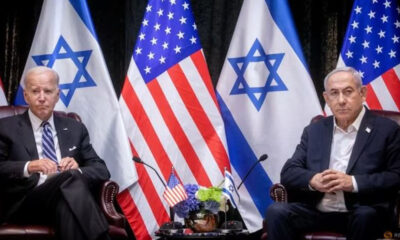
 International11 hours ago
International11 hours agoNetanyahu, Biden hold talks over tense Gaza ceasefire
-
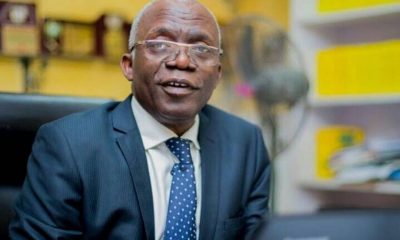
 News2 days ago
News2 days agoFalana to FG: Threatening Nigerians won’t stop mass protest
-

 News2 days ago
News2 days agoMinimum wage: Akpabio says domestic workers can’t earn less than N70,000
-

 News2 days ago
News2 days agoFG unveils training programme for 1,000 Nigerians in AI, blockchain
-

 metro2 days ago
metro2 days agoWanted Lagos drug baron, Temo, arrested
-
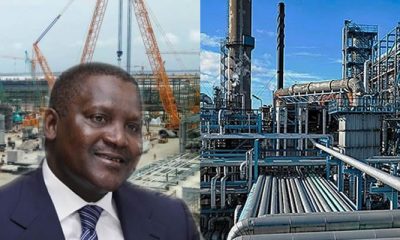
 News2 days ago
News2 days agoDangote refinery: MAN cautions against demarketing local investments











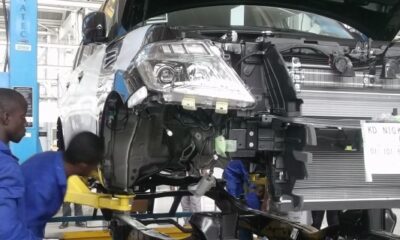


You must be logged in to post a comment Login